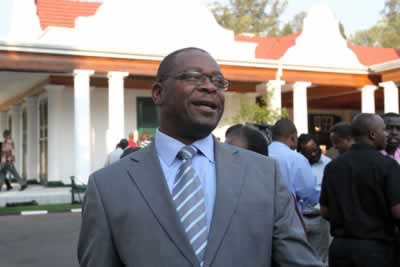
The Sunday Mail

Nixon Chekenya
“Financial services should not be a privilege reserved for the rich, but a right accessible to all.”
MOST people in rural Zimbabwe do not have bank accounts.
Despite being a human need, access to basic banking services in Zimbabwe in particular and Africa in general remains limited.
In 2023, an estimated 54 percent of Zimbabweans had no bank accounts (World Bank, 2024). This number is even higher in rural areas, where 67,5 percent of Zimbabweans reside (World Bank, 2024).
The limited access to banking services in the rural areas could potentially have important economic and social repercussions.
Without a formal banking account, it is difficult for people to save, ceteris paribus.
This means that people will be unlikely to have enough saved up for emergencies like illness.
In the event of such a shock, rather than withdraw money or take a loan, people might have to make tough decisions.
They may decide to take costlier actions like selling off assets and productive animals and taking children out of school to work in the fields (Dupas et al., 2014).
This lack of access to banking makes it difficult for people to save or obtain credit.
Despite all this, there is hope if the right thing is done.
There is hope in chaos.
Expanding access to banking can have important welfare impacts.
In his book “The Theory of Economic Development”, Joseph Schumpeter argues that a developed financial system can foster economic growth.
Expanding access to banking can have important welfare impacts (Chekenya, 2023).
There is a growing body of literature showing the positive effects of microfinance.
If combined with microinsurance and savings services, microloans and basic banking can have large and positive effects on low-income households.
This is a doable proposition.
Yes, it’s hard and one will not be far too wrong to regard this as being at the borderline of impossible.
We can sit down, complain and politicise everything, or choose to be part of the solutions team.
Doug Munatsi would say: “The idea that you want to always be on the sidelines criticising is also one that is not necessarily positive for the economy. It’s easy to be on the sidelines. But to be a participant is more difficult.”
From a policy standpoint, an important question is “how” to achieve this.
This is an area that requires a lot of creativity and innovation.
Some of the innovation can include reducing barriers to access to existing financial institutions (like reducing fees) or bringing banking options geographically closer to people.
Steward Bank once introduced the “bank on wheels” idea.
A less glamorous approach is building branches or ATMs in the rural areas.
This will involve heavy capital expenditure and administrative costs with low return on investment initially, but this will make sense in the long run.
MFIs, SACCOs, agent banking and village banks.
There are real challenges to be faced and things to be taken care of.
Policymakers have begun to devote attention to solving currency woes.
People may choose not to begin saving in a bank or using banking services because they do not trust the bank, service is unreliable and withdrawal fees are prohibitively expensive.
While simply expanding access to banking services will be a good starting point, broader success will be unattainable unless the quality of service is simultaneously improved.
There are demand challenges to be confronted.
Research on understanding what credit and savings products are best suited for the majority of rural households in needed.
*Nixon Chekenya is a lead research fellow & teaching assistant at the Department of Agricultural & Applied Economics (W. Davis College of Agricultural Sciences & Natural Resources)





